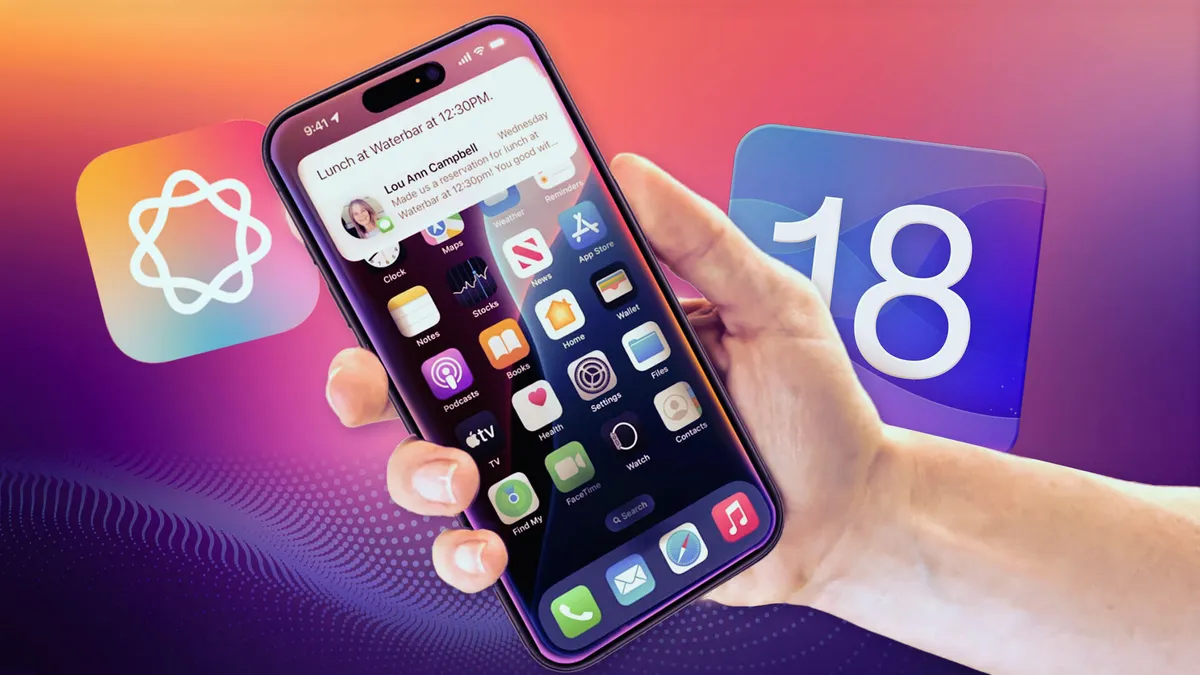As smartphone companies race to be the first to launch new generative AI features in their devices, Apple is taking a more cautious approach.
Despite facing weak iPhone sales and appearing behind in the AI race, Apple’s position could shift dramatically once its first Apple Intelligence device reaches the market.
Apple Inc. is a global tech giant known for designing, developing, and marketing electronic devices, software, and services. Among its core offerings are the iPhone, iPad, MacBook, Apple Watch, and Apple TV.
Through its focus on visual appeal, user experience, and the seamless integration of hardware and software, Apple has set itself apart from its competitors.
Apple has built a robust ecosystem that fosters brand loyalty by integrating its diverse product portfolio, including iCloud and the App Store.
Its leading products include the iPhone, iPad, Mac computers, wearables like the Apple Watch and AirPods, and services such as the App Store, Apple Music, iCloud, Apple Pay, and various subscription services.
Apple’s customer base spans a wide demographic, with consumers purchasing products online or directly from Apple’s retail stores.
The end market comprises a diverse, tech-savvy audience that seeks advanced technology and premium design for personal use, business applications, and creative industries.
The company’s primary revenue sources include sales of hardware products like iPhones, iPads, and Macs, along with steady income from services, subscriptions, and digital content via platforms like the App Store.
The iPhone remains Apple’s most significant revenue driver, generating over half of the company’s total revenue. Given the iPhone’s crucial role in Apple’s success, it garners a lot of attention from analysts.

Many analysts monitor the supply chain to estimate iPhone sales, and they’re currently unimpressed. Apple has lagged behind in launching AI features for iPhones, whereas competitors have already introduced generative AI capabilities to their users.
Apple’s recent struggles in China illustrate this point. Last quarter, iPhone sales in China dropped because the AI features Apple announced weren’t available in local languages, providing consumers little reason to upgrade.
However, this isn’t new for Apple. The company has never been known for being first to market with innovative features; it often waits for others to enter first.
Apple’s unique ecosystem allows it to do so, as users are generally reluctant to switch brands simply due to the absence of one feature.This approach could mean Apple’s AI features will be more refined than those from other companies.
Once they launch, these capabilities could encourage upgrades from older iPhone models. Apple has already revealed its new Mac Mini, a compact 5-inch-by-5-inch device that includes Apple Intelligence features.
The Mac Mini starts at $599 and is available for pre-order. As investors anticipate Apple’s Q4 earnings report, they may be better off watching Mac Mini sales instead of devices sold in the previous quarter.
If Apple Intelligence gains traction, this could mark the beginning of a new growth phase that might push the company closer to a $5 trillion valuation.
Apple is ranked 5th on our latest list of the 31 Most Popular Stocks Among Hedge Funds. According to our data, 184 hedge fund portfolios held AAPL at the end of the second quarter, up from 150 in the previous quarter.
While we recognize AAPL’s potential as a top AI investment, we believe certain other AI stocks offer the promise of even higher returns within a shorter timeframe.
For those interested in an AI stock as promising as AAPL but trading at under five times its earnings, check out our report on the most affordable AI stock.







Leave a Reply